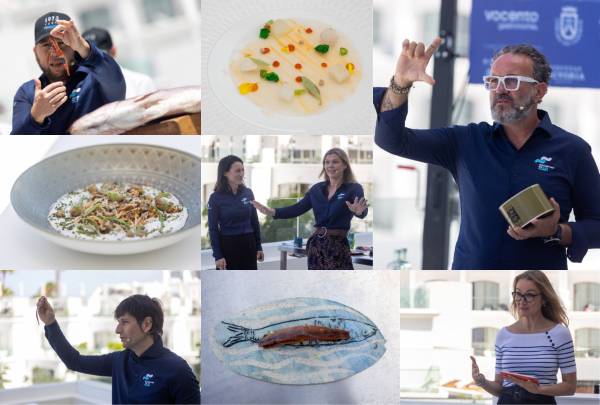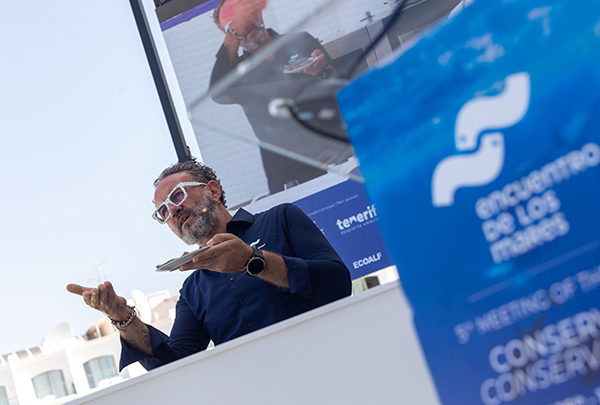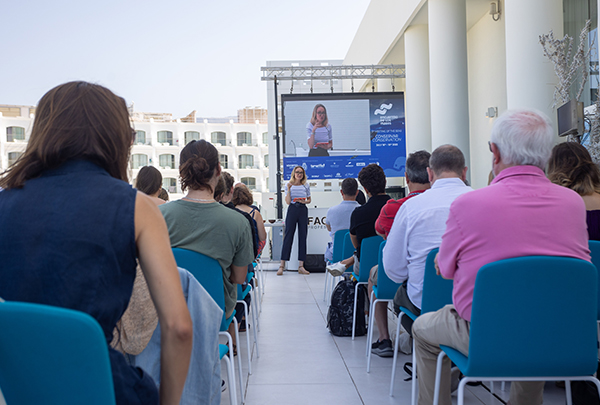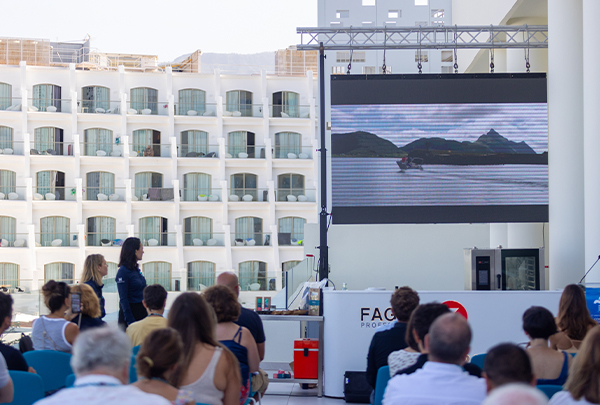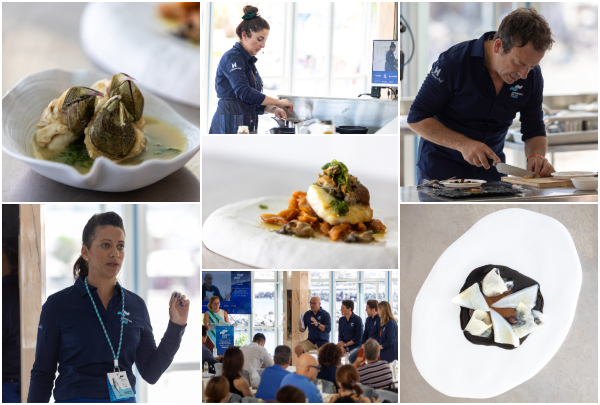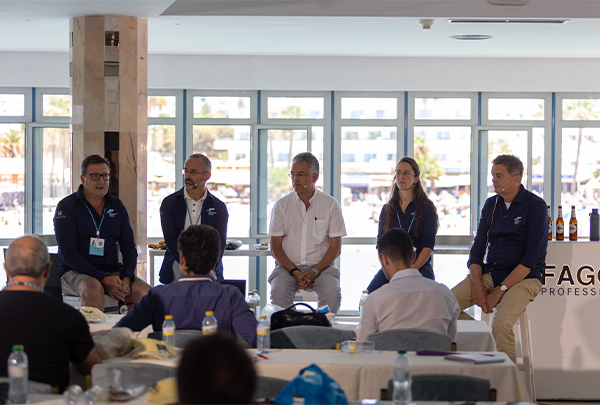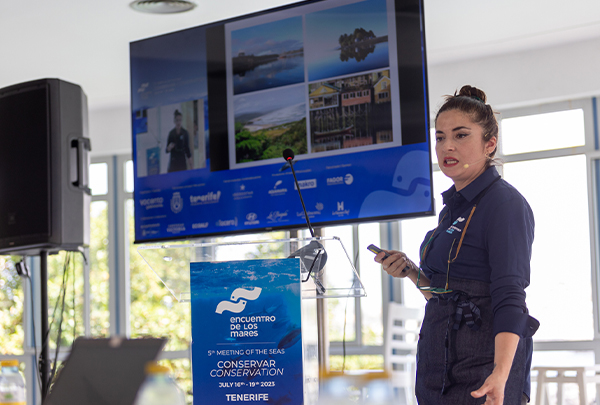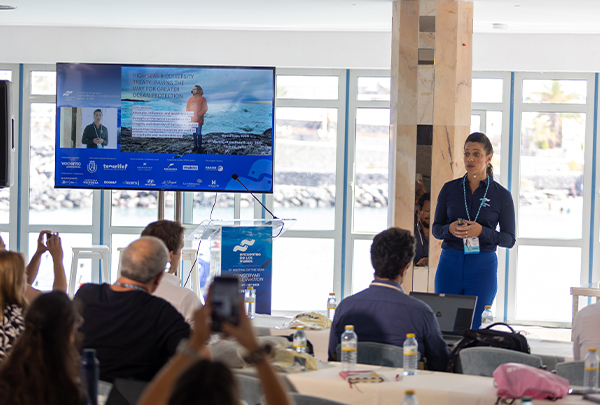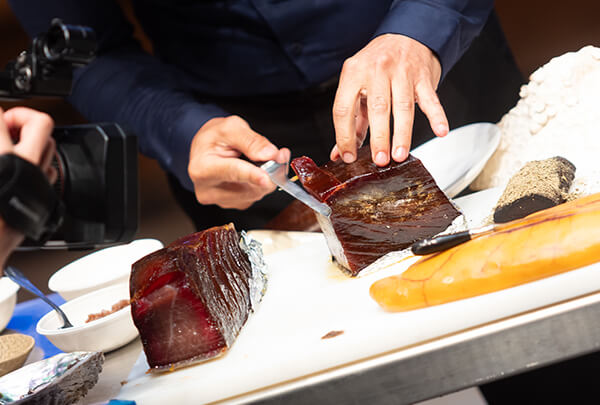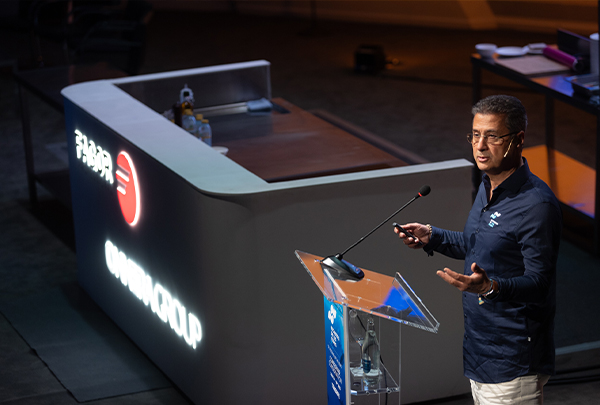News
Fishermen and chefs call for more dialogue between both camps
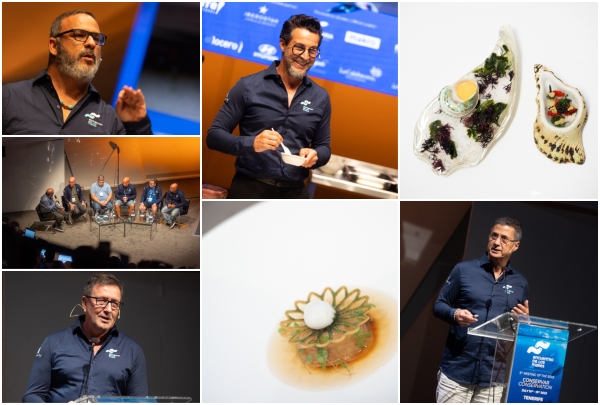
The event's scientific director, Carlos Duarte, calls for “more ambition in terms of protective measures and recovery of biodiversity" if we are to reach 30% of protected areas on the planet.
The Adán Martín Auditorium in Tenerife was the venue for the first day of the fifth Meeting of the Seas, in its first incursion into the Canary Islands since the island became the new centre of operations for the only event to combine science, gastronomy and fishing. An event setting out the central issues of the congress, held under the slogan "Conservation", and showing that collaboration between sectors and an ambitious commitment to recover biodiversity are essential to the future of the oceans.
The congress was opened by Lope Afonso Hernández, first deputy president and minister in the Tenerife regional government, who remarked that holding Meeting of the Seas in Tenerife is most important to the island because "it adds science to the tourism/gastronomy binomial, and generates awareness of conservation of the environment to help it survive and continue to offer the fine produce we have in Tenerife”. A mission which, as pointed out by the head of Vocento's Gastronomy division, Benjamín Lana, “will only make sense if we work in a boat chain in which all the links are equally important”.
Dialogue as a tool of change
Collaboration which, in fact, was the theme at the first of the round tables at this Meeting of the Seas, during which chefs and fishermen pointed out the importance of communication between both sectors to create an excellent product. There were representatives of the fishing sector such as Roberto Rodríguez, manager of Artesans da Pesca (A Coruña) and Adán Romero, a fisherman from the Nuestra Señora de la Consolación Guild in Punta del Hidalgo (Tenerife). On land manning the kitchens were Andoni Luis Aduriz (Mugaritz**, Errentería), Erlantz Gorostiza (MB**, Guía de Asora, Tenerife) and Aitor Arregi (Elkano*, Getaria).
All five agreed on the value of dialogue because, as Rodríguez said, "everyone knows their role, and if we don't communicate and transmit that knowledge and that information, there's no way of knowing what we have to correct in our practices to create a better product". The chefs agreed with this, and keep channels open with the fisherman who supply them with fish because, according to Aitor, "let's not forget that the first fish chef is the fisherman", and because "the basis of everything is the chance to learn, and for that you need interaction", added Andoni Luis Aduriz. "The desire for knowledge is now transversal, and this is also the desire of the customer, "who is going to be eating the product and wants to know, quite apart from its quality, where it comes from and whether it is sustainable", said the manager of Artesans da Pesca. The discussion also included conservation of the surroundings, as mentioned by Tenerife fisherman Adán Romero: “it's no good having good chefs or good ships if we have no sea resources and so protecting them is what we must do first”.
This is a task taken up by Carlos Duarte, professor of Marine Sciences at Saudi Arabia's King Abdullah University of Science and Technology (KAUST), who called for "more ambition in terms of protective measures and recovery of biodiversity” in addition to the need to create "a new vision of how we operate on the planet, to bring about 30% of highly protected areas, a number of areas densely transformed by human activity (cities), and another large section where we can still have the environment and interact with it". The main stumbling block in meeting all these objectives is economic. 200 billion euros have been committed to meet them, on land and in the oceans, but the truth is that "for the oceans alone the investment package required would be three times that amount". To achieve success, Duarte believes there is only one way forward: “we have to make investment in nature profitable".
The solution was voiced at the Tenerife Auditorium by Ralph Chami, a financial economist and co-founder of Blue Green Future and Rebalance Earth, who argues that "it is essential to understand the service nature provides to care for the planet, and put a price tag on that service - monetising, for example, the CO2 captured not only by flora such as seaweed meadows and mangroves, but also by fauna - for example, elephants on land, or whales and phytoplankton in water masses. That means that these services can be contracted, protecting and empowering the natural resources and valuable assets we possess".
In short, the new paradigm is based on a profitable market designed to satisfy the needs of suppliers (governments, indigenous communities) and also demand (businesses, private sector), because investors and companies will perceive a perfect formula for environmental responsibility, or will see live nature as a source of revenue, and governments will see these resources as genuine assets in which they will be willing to invest in order to protect and maintain them.
Conservation techniques and visions of a product
The only chef who has attended all the Meetings of the Seas, Ángel León, did not stay away on this occasion either, with a discussion of Aponiente's work lately, based on the utilisation of marine waste, with which they have created a line of surprising and delicious desserts. “We decided to stop throwing out items such as fish skin, scales and eyes, and we use them in recipes that reduce or remove the taste of the sea", he said.
Another maestro of Spanish cuisine, Quique Dacosta, talked about one of the culinary techniques to which he has dedicated most research - fish salting. Dacosta also brought several pieces of fish cured using this technique to the Auditorium, to show how he adapts the system to the characteristics of each variety. “If a fish belly needs 10 months of salting, we put a loin of tuna away for only one day, saturated with salt because it doesn't have so much fat in its grooves", he explained.
Dacosta was not the only one to explain his work with conservation techniques - this was also discussed by Cristóbal Muñoz, chef at the Ambivium* (Peñafiel, Valladolid), alongside his creativity director Guillermo Ortega, and their talk homed in on several food conservation techniques they apply on their Cellarium menu. To illustrate this task, Muñoz and Ortega used a 4 kg Atlantic sea bass which they sectioned, and also used up several pieces which are normally discarded, thus demonstrating "maximum usage of the product".
Another speaker who dwelt on all the possibilities of a product, in his case hake, was Portuguese chef Rui Paula, from the Michelin-starred establishment Casa de Chá da Boa Nova (Portugal).
Sartún Prize and eight-star dinner
The congress was due to finish with the award of the Sartún Prize to Alexandra Cousteau, by way of a tribute to her protection of the oceans. This environmental activist, expert scuba diver and driver of the OCEANS 2050 ocean recovery initiative, declared she was "extremely honoured by the award and by the chance to take part in an event working towards the defence of the marine environment from a multidisciplinary perspective".
The prize was to be awarded at a dinner prepared by four of Spain's best chefs on the terrace of Restaurante Poseidón, at Hotel Iberostar Selection Anthelia, Costa Adeje (Tenerife): Quique Dacosta (Quique Dacosta***, Denia, Alicante), Albert Adrià (Enigma*, Barcelona), Andoni L. Aduriz (Mugaritz**, Rentería, Guipúzcoa) and Erlantz Gorostiza (M.B** The Ritz-Carlton Abama, Guía de Isora, Tenerife). This will be the first time they have cooked together, and will be doing so with a wholly original menu featuring Cantabrian Sea fare such as baby squid, Atlantic Ocean produce, represented by tuna, and the Mediterranean, represented by Denia prawns.

